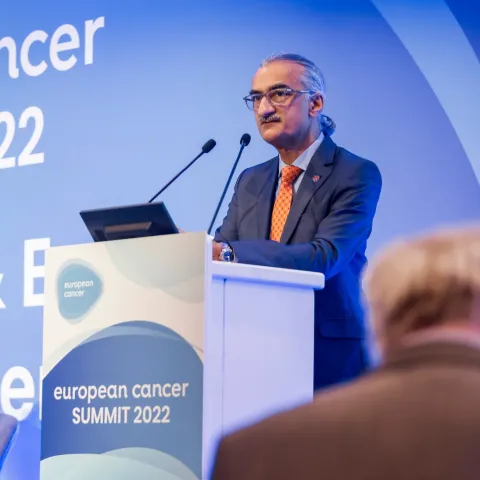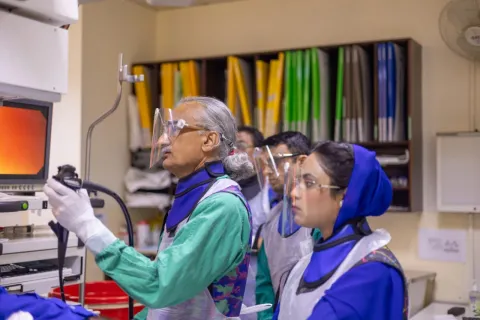
Dr Aasim, Pakistan

As a physician, I have seen first-hand how cultural and linguistic divides can have serious consequences for patients. Language barriers, in particular, can make the delivery of high-quality healthcare very challenging. As a gastroenterologist at Shaukat Khanum Memorial Cancer Hospital and Research Centre in Lahore, Pakistan for over thirty years, I have had the privilege of serving patients from diverse backgrounds. Up to a third of my patients come from the north of Pakistan, or from Afghanistan, and speak Pashto or Farsi (Persian) as their primary language. A number of these patients require an internal examination of their large bowel, or colon, called a colonoscopy. Patients undergoing this examination need to follow a strict set of dietary restrictions and use a bowel cleansing agent so as to clean out the intestine and ensure adequate views are obtained. My colleagues and I realised some time ago that ill-prepared colons are more likely to be seen in those who speak Pashto or Farsi. This makes the procedure more challenging, with an increased risk of complications and a greater likelihood of inaccurate diagnosis. Importantly, poor bowel preparation also means that the procedure cannot be performed at all in a proportion of such patients, necessitating a repeat appointment with its attendant inconvenience for the patient and those accompanying them, as well as adding to costs and delaying diagnosis and treatment. Over the years, we have tried to ensure that bowel preparation instructions are provided by a member of staff who speaks the patient’s language, but with variable results.
Recently, we decided to try a new approach and worked with a team of colleagues and interpreters (thanks to UICC Connect!) to develop patient education materials about bowel preparation in all the languages commonly spoken by our patients. In order to supplement current methods of explaining the process, we have also developed a short video in various languages, to be shared with patients by WhatsApp, outlining the importance, and the process, of undergoing bowel preparation.
This is one example of how listening to patients is so crucial. It's not just about treating their medical condition but also about understanding their unique challenges, cultural backgrounds, and socio-economic contexts. As healthcare providers, we have the power to empower our patients with knowledge, and it's our responsibility to do so. By taking the time to address the root causes of disparities, we can create a more inclusive and equitable healthcare system.
